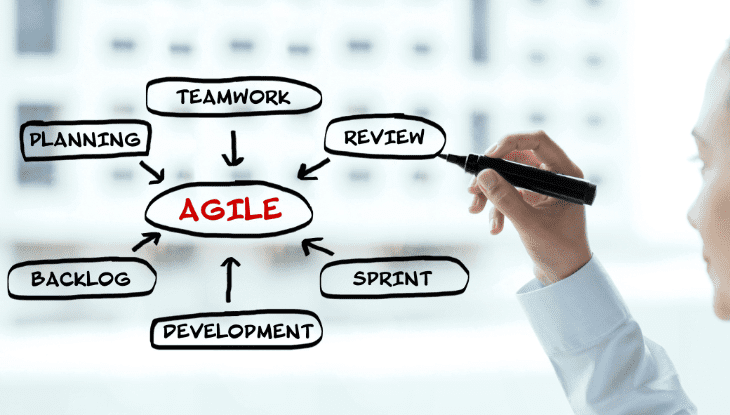What is Agile? Many people seeking effective project management methods ask themselves this question. Agile is an approach that enables teams to quickly respond to changes and deliver value to customers in a shorter time.
In this article, you will learn what Agile is and what its key methodologies are. We will also present how companies can implement these techniques to improve their efficiency and customer satisfaction.
What is Agile? Basics
Agile is a project management method. It focuses on continuous delivery of value to the customer through responsive teams. This method divides the project into small, manageable segments called iterations. Each iteration encompasses all stages of software development. It starts with planning, goes through analysis, design, coding, and testing, and ends with deployment.
This approach allows teams to quickly adapt to changing requirements. Additionally, they can regularly deliver functional pieces of software. The system promotes close collaboration between team members and the customer. It also requires regular communication and progress assessment. This method enables flexible project management and facilitates early detection of issues.
Agile Methodologies
Methodologies are various approaches to project management. The most popular ones are Scrum, Kanban, and Lean. Each methodology introduces a unique set of principles and practices. Nevertheless, they share a common goal of fast value delivery to the customer. Scrum divides the project into short sprints.
This allows for regular progress assessment and flexible implementation of changes. Kanban focuses on continuous workflow. This helps teams effectively manage tasks. Lean focuses on minimizing waste. It does this by optimizing processes.
Implementing Agile methodologies brings many benefits. Teams become more flexible and responsive. They can quickly adapt to changing requirements. Regular communication and collaboration strengthen team relationships.
Additionally, close collaboration with the customer ensures that the end product meets expectations. It changes traditional approaches to project management. It introduces a culture of continuous adaptation and improvement.

Examples of Implementation
Spotify and Netflix are examples of companies that have achieved success with Agile. Both use this methodology to manage projects. This allows them to quickly respond to market changes and adjust their services to customer expectations. With Agile, Spotify develops its features based on continuous feedback from users. This allows the company to offer personalized playlists and better music recommendations.
Netflix, on the other hand, uses Agile to optimize its streaming platform. This allows them to quickly introduce new features and improve picture quality. It also helps the company test new concepts. It enables rapid changes. Both companies show that flexible project management fosters innovation. It allows products to be tailored to the dynamically changing needs of customers.
Key Benefits of the Method
Agile facilitates rapid product delivery to the market. This method shortens the time from idea to implementation. It allows companies to respond more quickly to customer needs. Teams work in short cycles. This allows them to frequently present new features and fixes. This increases customer satisfaction.
It also brings greater adaptability to change. In a dynamic business environment, where requirements often change, this is key to success. Teams can more easily adjust plans and priorities. This allows for more efficient resource utilization.
Better teamwork is another important benefit of Agile. This method promotes communication and openness. Teams work together to achieve common goals.
Regular meetings and project updates foster trust and understanding. Each team member knows the project goals. They understand how their work contributes to overall success. This approach builds stronger, more integrated teams. It fosters innovation and creativity.
FAQ – Questions and Answers – What is Agile?
Ideal for projects requiring high flexibility and quick adaptation to changes.
The main differences are flexibility in planning, short work iterations, and emphasis on team communication.
To effectively implement methodologies, it is recommended to train teams in their principles and practices.
Success is measured by the value delivered to customers, not just by completing all planned tasks.

